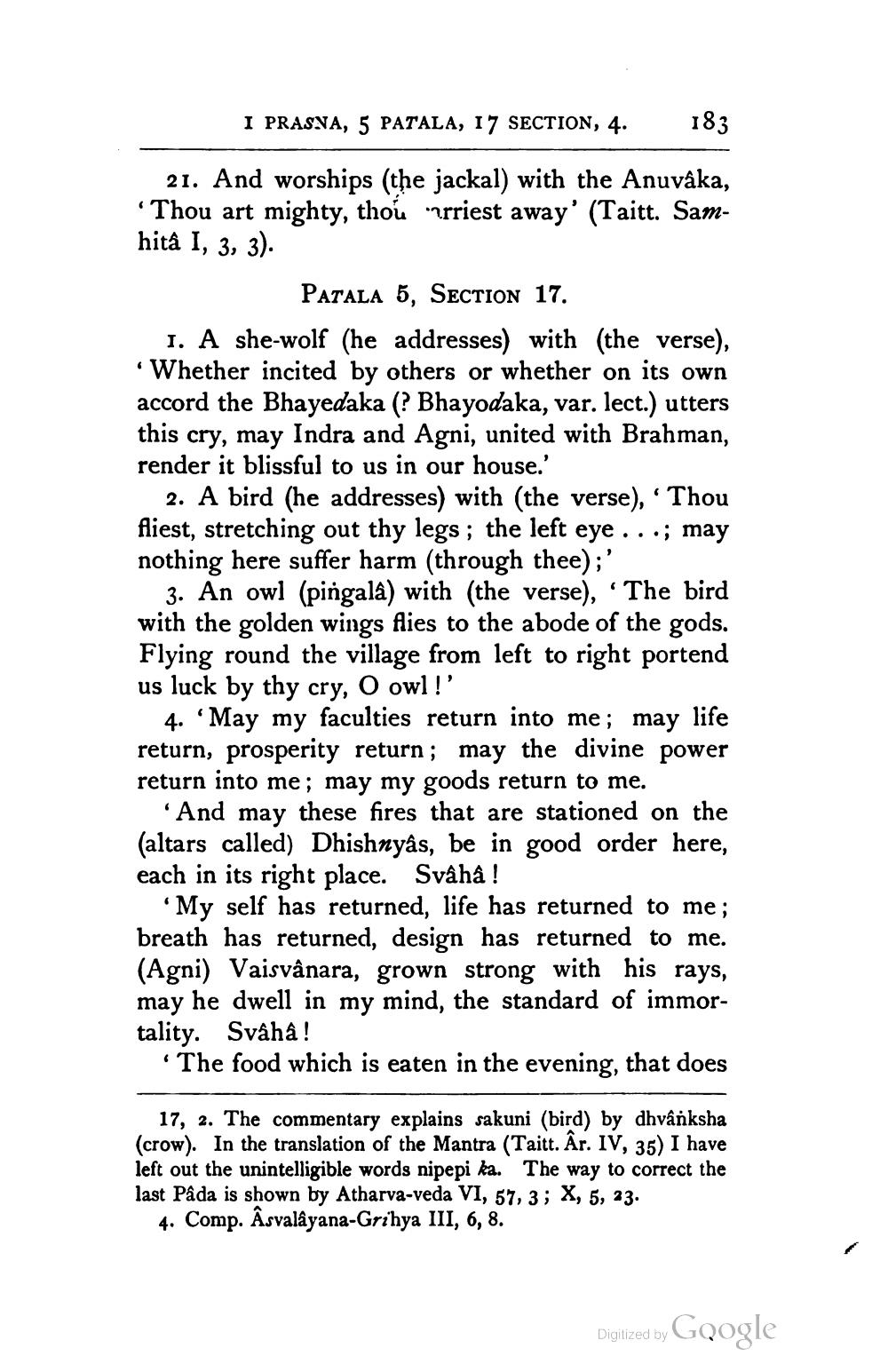________________
183
I PRASNA, 5 PATALA, 17 SECTION, 4.
21. And worships (the jackal) with the Anuvâka, 'Thou art mighty, thou rriest away' (Taitt. Samhitâ I, 3, 3).
PATALA 5, SECTION 17.
1. A she-wolf (he addresses) with (the verse), Whether incited by others or whether on its own accord the Bhayedaka (? Bhayodaka, var. lect.) utters this cry, may Indra and Agni, united with Brahman, render it blissful to us in our house.'
"
2. A bird (he addresses) with (the verse), 'Thou fliest, stretching out thy legs; the left eye. ; may nothing here suffer harm (through thee);'
3. An owl (pingalâ) with (the verse), 'The bird with the golden wings flies to the abode of the gods. Flying round the village from left to right portend us luck by thy cry, O owl!'
4. May my faculties return into me; may life return, prosperity return; may the divine power return into me; may my goods return to me.
'And may these fires that are stationed on the (altars called) Dhishnyâs, be in good order here, each in its right place. Svâhâ!
'My self has returned, life has returned to me; breath has returned, design has returned to me. (Agni) Vaisvânara, grown strong with his rays, may he dwell in my mind, the standard of immortality. Svâhâ!
'The food which is eaten in the evening, that does
17, 2. The commentary explains sakuni (bird) by dhvânksha (crow). In the translation of the Mantra (Taitt. Âr. IV, 35) I have left out the unintelligible words nipepi ka. The way to correct the last Pâda is shown by Atharva-veda VI, 57, 3; X, 5, 23.
4. Comp. Âsvalâyana-Grihya III, 6, 8.
Digitized by
Google




